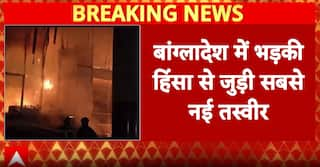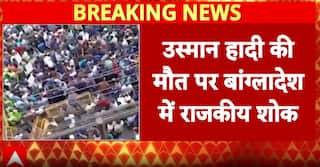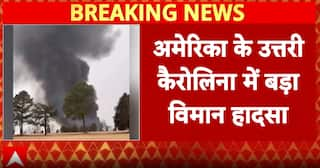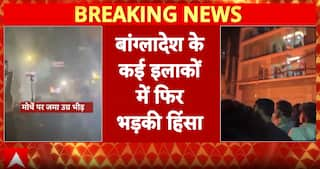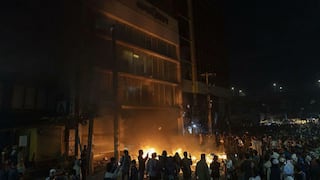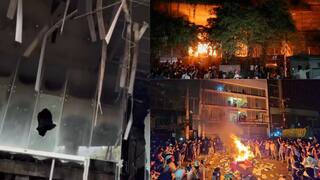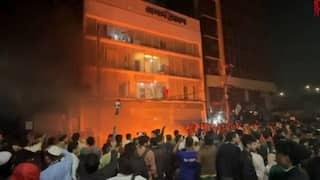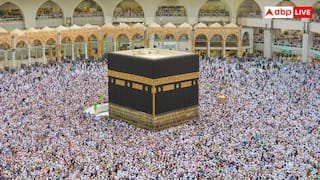Manmohan Singh's Iconic 1991 Budget Speech: A Turning Point For Indian Economy; WATCH
Singh highlighted the urgency of the situation. "Neither the Government nor the economy can live beyond its means year after year.," he declared during his budget speech

Former Prime Minister Manmohan Singh, who was hailed as the architect of India's economic reforms, took his last breath in Delhi on Thursday. The Congress veteran was admitted to the emergency ward of AIIMS in critical condition around 8:30 pm.
In an official statement, AIIMS confirmed that Dr Manmohan Singh, aged 92, passed away after being treated for age-related medical conditions. The statement noted that he experienced a sudden loss of consciousness at home on Thursday.
"With profound grief, we inform the demise of the former Prime Minister of India, Dr Manmohan Singh, aged 92. He was being treated for age-related medical conditions and had a sudden loss of consciousness at home on 26 December 2024. Resuscitative measures were started immediately at home. He was brought to the Medical Emergency at AIIMS, New Delhi at 8:06 pm. Despite all efforts, he could not be revived and was declared dead at 9:51 pm," the statement said.
Singh, who served as Prime Minister for two terms in the Congress-led UPA government from 2004 to 2014, retired from the Rajya Sabha in April 2024. Before becoming Prime Minister, he was the Finance Minister in Prime Minister PV Narasimha Rao's government from 1991 to 1996, where he implemented key reforms that helped stabilize India’s economy.
Historic Budget Speech 1991
As Finance Minister, Singh delivered a historic speech on July 24, 1991, lasting 1 hour and 35 minutes, that opened up India’s economy to the world. In the face of a severe balance of payments crisis, the 1991 Budget introduced sweeping economic reforms that liberalized the Indian economy and introduced measures to spur domestic growth.
In his speech, Manmohan Singh reminded the House that India had only 15 days' worth of foreign exchange reserves remaining. "The current level of foreign exchange reserves, in the range of Rs.2500 crores, would suffice to finance imports for a mere fortnight," he stated.
Singh highlighted the urgency of the situation. "Neither the Government nor the economy can live beyond its means year after year.," he declared during his budget speech.
He then unveiled measures to "liberalize the policy regime for direct foreign investment" into India. The former finance minister also introduced a radical policy aimed at dismantling the restrictive license raj system that had long hindered the economy.
"It is essential to increase the degree of competition between firms in the domestic market so that there are adequate incentives for raising productivity, improving efficiency and reducing costs. In the pursuit of this objective, we have announced important changes in industrial policy which will bring about a significant measure of deregulation in the domestic sector, consistent with our social objectives and the binding constraints on the balance of payments," Manmohan told Parliament.
The Congress-led government also took the historic step of opening up the Indian economy to the world, facilitating two-way access to global markets and technologies.
"The time has come to expose Indian industry to competition from abroad in a phased manner. As a first step in this direction, the Government has introduced changes in import export policy, aimed at a reduction of import licensing, vigorous export promotion and optimal import compression. The exchange rate adjustments on 1st and 3rd July 1991 and the enlargement and liberalisation of the replenishment licence system constitute the two major initial steps in the direction of trade policy reform," he explained.
In conclusion, Manmohan Singh quoted the famous novelist, Victor Hugo, saying, "No power on earth can stop an idea whose time has come”." He ended his historic speech with the iconic line from renowned poet Girija Kumar Mathur's composition, "Hum Honge Kaamyab."
"I do not minimise the difficulties that lie ahead on the long and arduous journey on which we have embarked. But as Victor Hugo once said, 'No power on earth can stop an idea whose time has come'. I suggest to this august House that the emergence of India as a major economic power in the world happens to be one such idea. Let the whole world hear it loud and clear. India is now wide awake. We shall prevail. We shall overcome,” Singh said during his speech.
Also Read: From 1991 To 2014: How Manmohan Singh's Policies Reformed India











